The truth about Thatcher’s acting lessons from Laurence Olivier
It is 50 years since Margaret Thatcher became leader of the Conservative Party – but the story of who was behind her drastic image change is less well known. Here, Tim Walker recounts how one of our greatest actors helped fashion an indelible theatrical creation


Prime ministers know better than anyone that it isn’t just what you say but the way you say it. And some people need more help than others. For every Tony Blair and Boris Johnson, shovelling charm and charisma in spades, there is a John Major or Keir Starmer, whose presentation skills feel more PowerPoint than powerful. This is where the experts come in.
Recently, it was revealed that Starmer had sought the help of former Royal Shakespeare Company actress Leonie Mellinger. And, of course, one of the most famous political transformations of all time was that of Margaret Thatcher, who made it her mission to change her voice – once deemed too harsh to be included in a party-political broadcast. While her metamorphosis into the polished Iron Lady who stood on the steps of No 10 looking and sounding like a leader is well known, how she got there has long been shrouded in mystery – especially the role played by one of Britain’s greatest actors.
In her early days in the Commons, Thatcher was shrill, awkward, and unprepossessing. As an ambitious education secretary, she knew she had a problem and wanted to do something about it.
Of course, all senior politicians want the public to believe that what they see is what they get, but in the television age, that is seldom, if ever, possible. Thatcher and her inner circle were, however, far better at keeping the secret than Starmer’s team. It is only relatively recently that the full debt Thatcher owed to her own illustrious acting coach – Laurence Olivier – has become clear.
During the 1979 general election campaign, the change in her tone and comportment was noticeable. When the canny BBC political journalist Michael Cockerell caught up with Thatcher and asked her directly why her voice had become so much softer, she didn’t dispute that it had changed but, after a pause, said she could not explain it herself. It was only in 2012 – a year before Thatcher’s death – that the truth began to slowly emerge.
The family of the late Kate Fleming, a famous voice coach at the National Theatre, released her private papers to the institution, which included invoices for work she had undertaken for the Conservative Party between 1972 and 1976. Thatcher’s name was discreetly unmentioned, but the invoices covered her time as education secretary under Edward Heath, up to and just beyond her accession as party leader in 1975.
Thatcher loyalists explained the invoices away, saying Fleming had come to work for her after Gordon Reece – Thatcher’s image guru, who officially started working for her in 1978 as her director of publicity – had bumped into Laurence Olivier by chance on a train to Brighton. Reece had supposedly confided in Olivier – on their very first meeting, no less – that he was concerned Thatcher was coming across badly. Olivier then allegedly suggested she see Fleming, the woman who had helped him find the deep octaves he needed as Othello.
Wanting to preserve Thatcher’s image as an ordinary “housewife”, those close to her were reluctant to admit that Olivier and Thatcher had ever actually met. But this changed after Tim Bell, another of Thatcher’s image consultants, gave an interview shortly before his death in 2019, in which he finally admitted that Olivier, a lifelong Conservative, and Thatcher had indeed had a meeting.
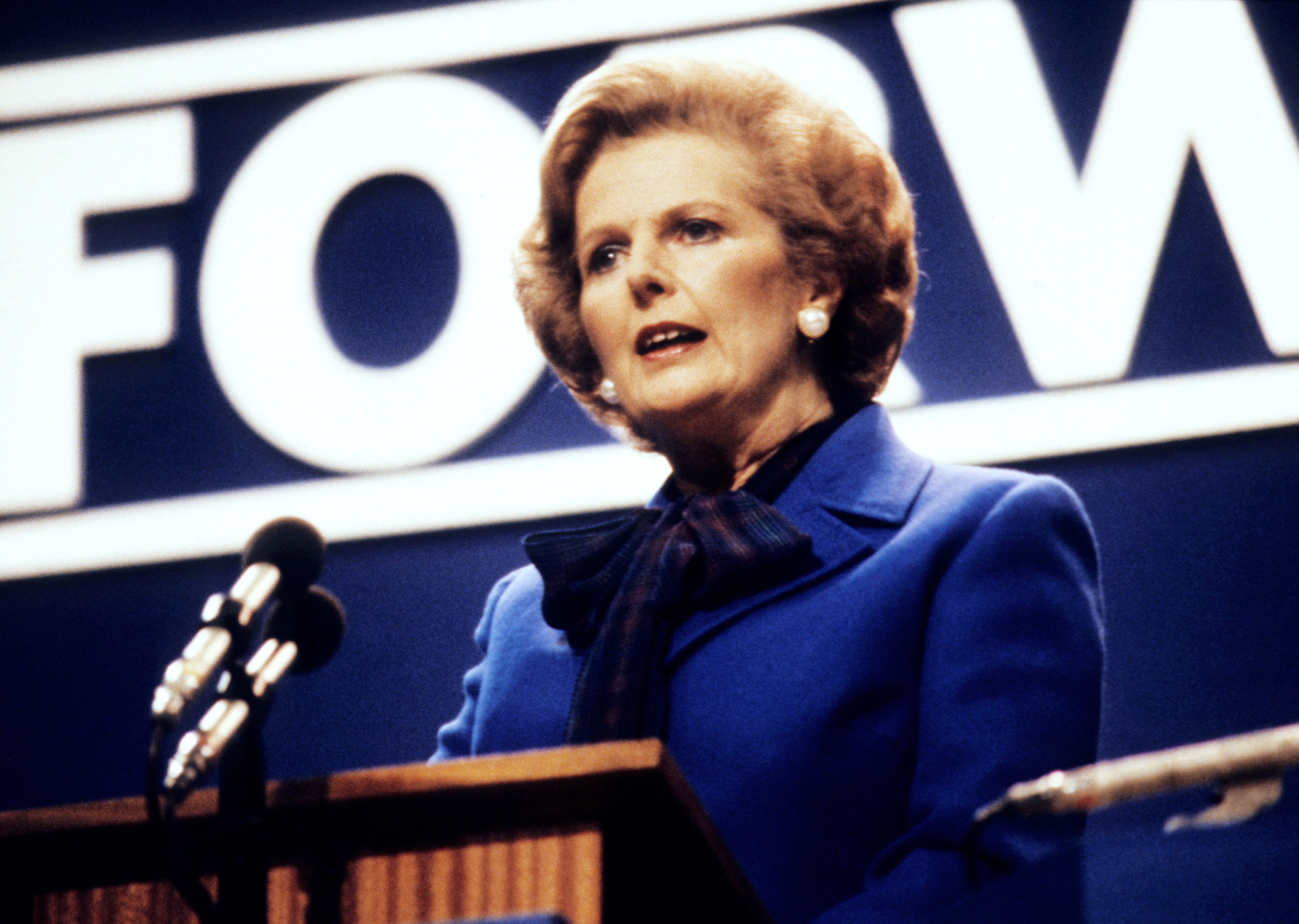
Even decades after Thatcher left office, attempts were made to downplay Olivier’s role. Some claimed that all Olivier had done when they met was drone on about his own career, boring Thatcher rigid. In another version, it was Thatcher who had bored Olivier. Clearly, both stories strain credulity: these two strong personalities, leading such interesting lives, would unquestionably have found each other fascinating.
I first heard the tale of Thatcher and Olivier working together around the turn of the millennium and was immediately intrigued. The late playwright Ronald Harwood – a close friend of Reece, as well as Thatcher’s speechwriter Ronald Millar – told me the pair had met not just once but multiple times. He also spelled out exactly why she had seen him: for acting classes.
These lessons covered not just her voice but essentially the creation of the role she was to play – from her deportment to her wardrobe. Made up and costumed, she became a force to be reckoned with.
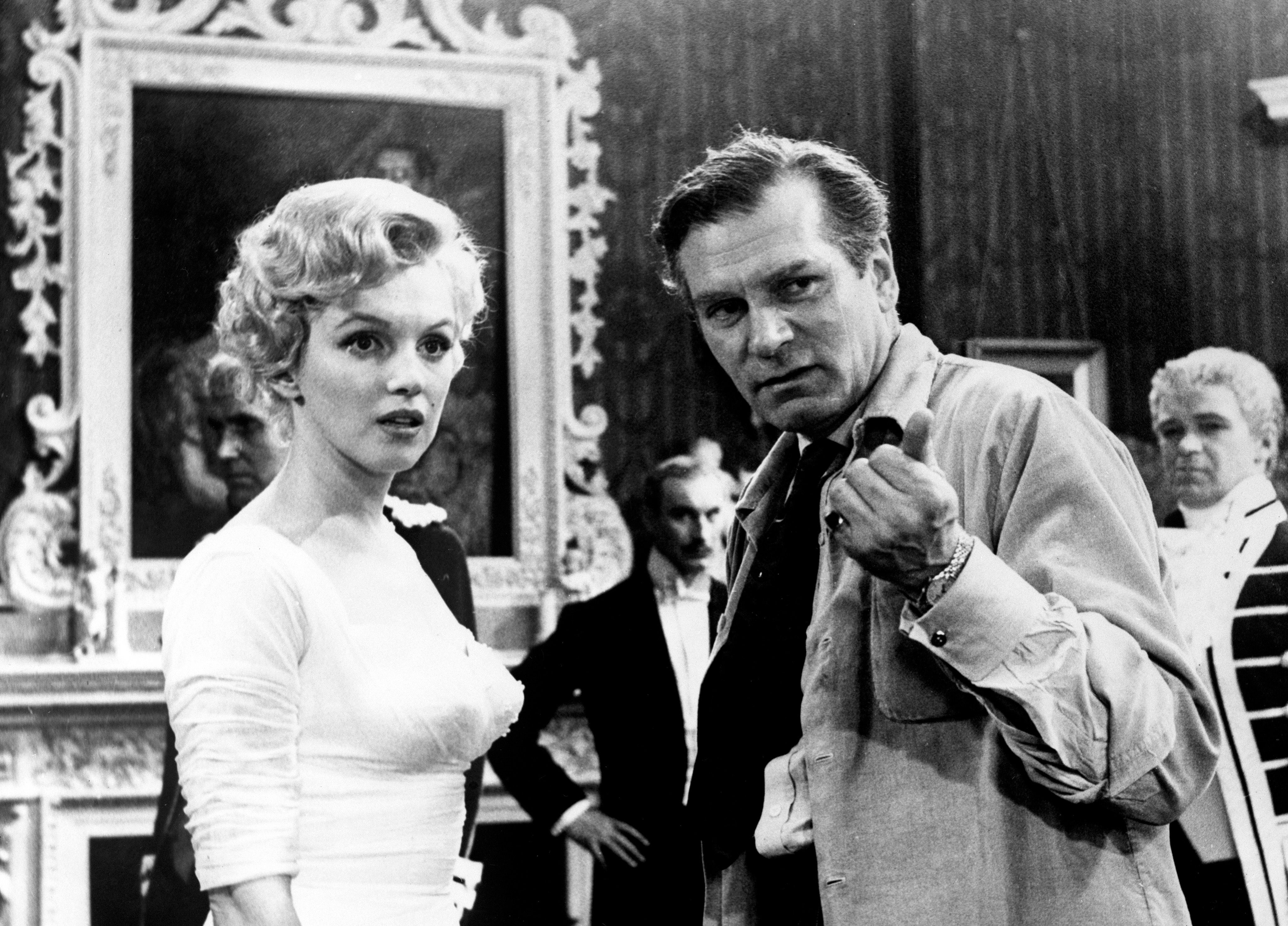
Certainly, when anyone looks at footage of the pre-Olivier Thatcher and the post-Olivier Thatcher, there is no question that Cockerell’s early suspicions on the campaign trail were more than justified. Olivier, a very traditional “from-the-outside-in” actor known for his emphatic style, had plainly done a bit of a number on her. Her whole demeanour – from her hair to her handbag – is unmistakably theatrical.
I couldn’t stop imagining how this duo had worked together, and this became the inspiration for my play When Maggie Met Larry, which is being broadcast on Radio 4 to mark the 50th anniversary of her becoming leader of the Conservative Party. The joy of drama is that you can give your imagination free rein – and at one point, I even have Olivier lying physically on top of the future prime minister. Olivier was, in real life, a terrible flirt, and that, of course, adds a particular frisson to the proceedings.
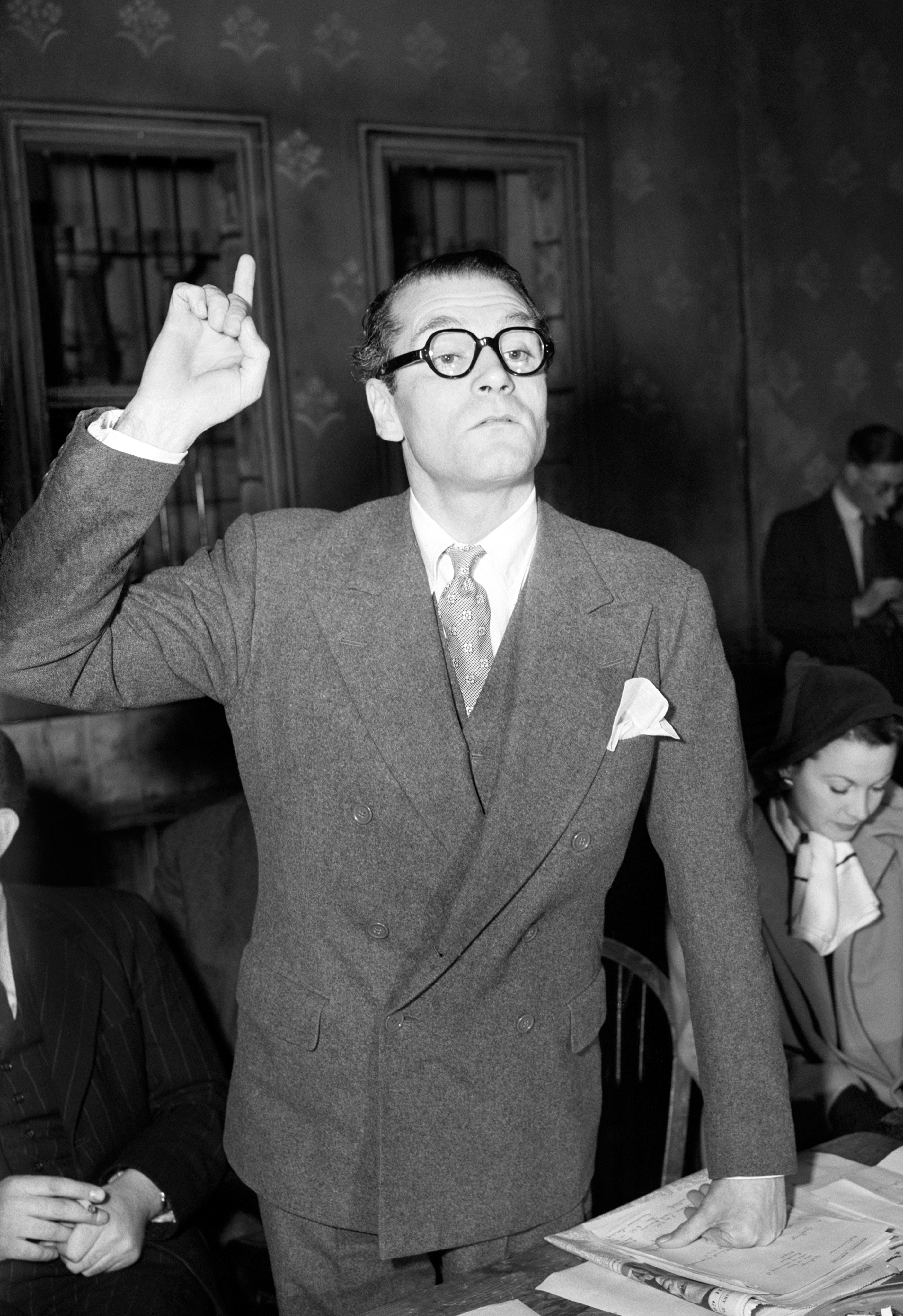
The play also brings out all the contrasts between these larger-than-life characters: the prudish, once-married Thatcher and the louche, thrice-married Olivier. Then there were the starkly different worlds they inhabited and the additional twist that, when they met, Olivier was in the twilight years of his career, while she was at the dawn of hers.
Naturally, I asked Harwood why he didn’t write a play about it himself. He replied wearily that Reece had told him the story in confidence, and he was himself a loyal Tory. Harwood said that I could do whatever I wanted with the story, but only when all those involved – including himself – were dead and buried. That is how, after my old friend passed away in 2020, I came to tentatively run the idea by a few people and begin working on my drama.
Clearly, everything hinged on getting the right actors to play Thatcher and Olivier. For the former, the bar is especially high. Patricia Hodge emphasised Thatcher’s sensual side in The Falklands Play; Meryl Streep made her seem bossy and arch in The Iron Lady; Janet Brown played her for laughs in the James Bond film For Your Eyes Only. Lesley Manville, Andrea Riseborough, and Lindsay Duncan have all had a go at walking in her patent leather heels, and most recently, Harriet Walter captured Thatcher’s vulnerable side in James Graham’s Brian and Maggie.
Since this was radio, all that mattered was getting an actor who could communicate Thatcher’s personality through her voice. With no need for a physical resemblance, Frances Barber – one of the most beloved and respected names in the business – proved to be an inspired choice.
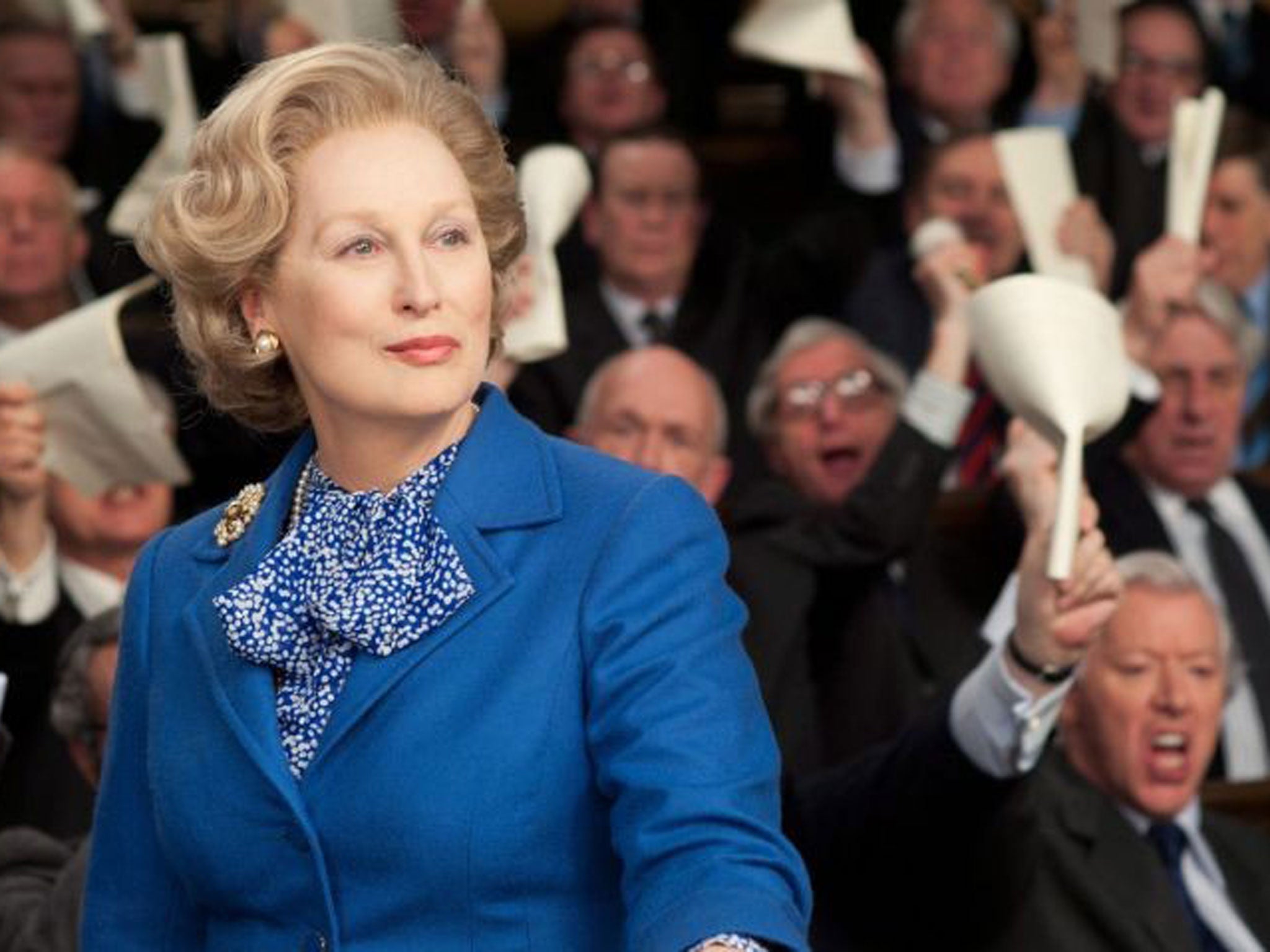
Despite her vocal left-wing views, she quickly inhabited Thatcher’s persona and now admits that the experience has made her more understanding of the often-divisive politician, particularly in terms of her own insecurities as someone in the limelight. Just as the real Thatcher needed help with her voice, Frances had her own voice coach in Steve Nallon, the man who gave the Tory leader her voice on Spitting Image.
As a protege and friend of Olivier, Derek Jacobi, meanwhile, brings special gravitas to the role of her acting coach. Ever the perfectionist, he wanted to run through the script over several days at his home in north London before we recorded the play over two days at a studio on an industrial estate in Acton last summer. Under the deft direction of Richard Clifford, Derek brilliantly communicates Olivier’s love of acting, his insecurities, and his wicked sense of humour.
So what does Frances’s Thatcher bring that hasn’t been done before? I am biased, of course, but I would say she takes our understanding of Thatcher to a whole new level – that the former prime minister was ultimately a theatrical creation. And 50 years on, her performance on the world stage has not been forgotten.
‘When Maggie Met Larry’ airs on Radio 4 at 3pm on 15 February and will be available on BBC Sounds
Join our commenting forum
Join thought-provoking conversations, follow other Independent readers and see their replies
Comments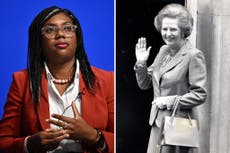

Bookmark popover
Removed from bookmarks